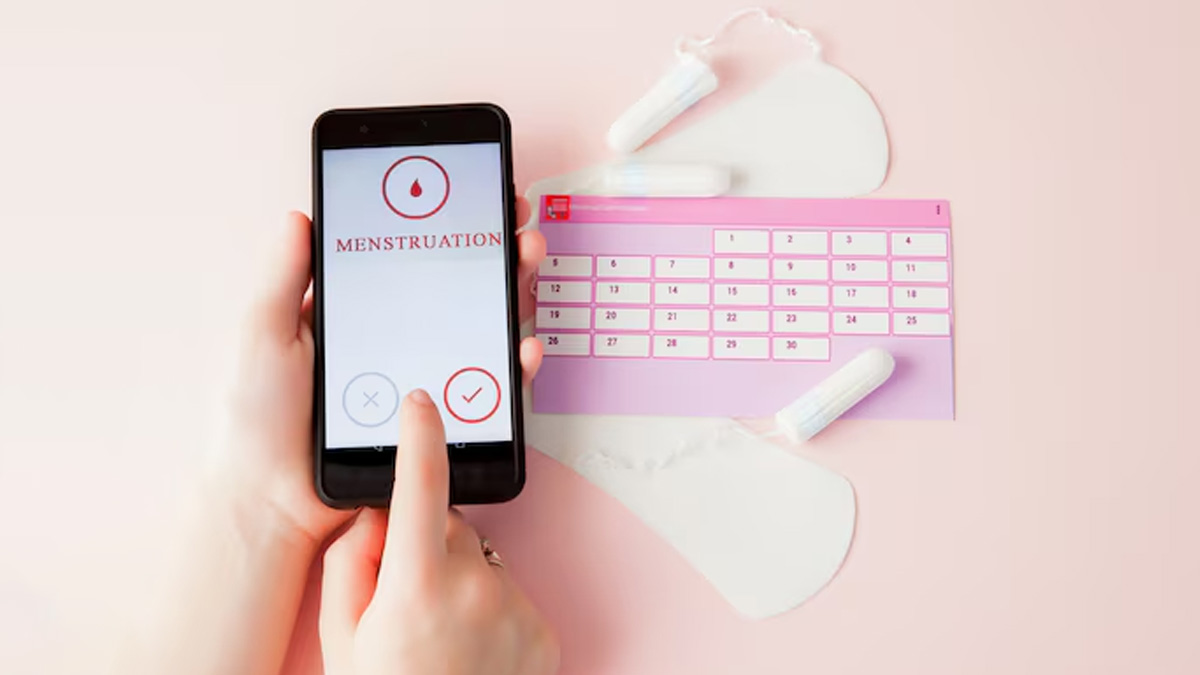
The menstrual cycle is a monthly hormonal cycle that involves a number of changes in a woman’s body, primarily to prepare for a possible pregnancy. It begins with the thickening of the uterine lining, followed by ovulation when an egg is released from the ovaries. If fertilisation does not occur, the lining sheds, resulting in menstruation.
Table of Content:-
Tracking your menstrual cycle is important as it helps you understand your body better, predict ovulation, and detect any irregularities that might signal potential health issues. Period tracking apps have made this process easier, allowing women to monitor their cycles, symptoms, and fertility in real-time. But the question that bothers many is: how accurate are these period tracking apps?
Also Read: How Menstrual Symptoms Change In Your 20s, 30s, And 40s
How Do Period Tracking Apps Work?![]()
Just like any other applications, period tracking apps also gather a lot of personal data, such as the start and end dates of menstruation, flow intensity, symptoms, and other related factors like mood changes or physical discomfort, to help individuals monitor their menstrual cycles.
These apps use algorithms to predict future cycles by analysing the user’s input over time, which can be especially helpful in identifying patterns and irregularities.
In addition to tracking periods, some apps also help users to track their ovulation, fertility windows, and other health metrics like body temperature or cervical mucus, making them useful for those trying to conceive or avoid pregnancy.
How Accurate Are Period Tracking Apps?![]()
While period trackers are beneficial for those who tend to forget their menstrual cycle dates or want to monitor their ovulation and fertility windows, they are not 100% accurate.
These apps take into account user-entered data and general patterns, which can vary from person to person.
Additionally, factors such as stress, illness, or hormonal imbalances can also contribute to irregularities in the menstrual cycle, making predictions less reliable.
A 2022 survey of 330 women who used period tracker apps found that 22.1% of period tracker apps contain serious inaccuracies, leading to negative effects on women.
When periods started earlier, women reported feeling unaffected, frustrated, anxious, or confused. When periods started later, women were often concerned about pregnancy, disappointed, sought advice, or thought about menopause.
The study concluded that period tracker apps need to be more transparent about their intended use and reliability, especially regarding period due dates and ovulation.
Also Read: Menstrual Health After Childbirth: Expert Insights And Tips For Managing Postpartum Periods
Menstrual Cycles Can Vary From Person To Person![]()
The average menstrual cycle is said to be 28 days, with ovulation occurring at day 14, or 14 days before the next period. However, it is important to note that the length of the menstrual cycles can vary from person to person, ranging from 21 to 35 days.
Cycles that are shorter than 21 days are called polymenorrheic, and cycles that are longer than 35 days are called oligomenorrheic.
According to a study published in the Journal of Medical Internet Research, only 13–16% of women have a 28-day cycle, and only 13% ovulate on day 14, but there were variations across age groups and body mass index (BMI).
Younger women tended to have shorter luteal phases, while older women had longer luteal phases. The luteal phase is a phase of the menstrual cycle that occurs after ovulation and prepares the uterus for pregnancy.
Despite the differences in menstrual cycles, many period tracking apps predict ovulation as occurring 14 days before the estimated start of the next period. This method, however, may be inaccurate for many users, as it assumes a standard cycle length that doesn't account for individual differences.
Period Trackers Can Be Beneficial, But Here's What You Should Not Do
While period tracking apps can give you a general idea of your menstrual cycle and ovulation window, it's important not to rely on them entirely.
These apps are based on algorithms that may not take into account personal variations, such as irregular cycles or hormonal fluctuations.
Therefore, it is crucial to be aware of your body’s signals and consult a healthcare provider for accurate guidance. Most importantly, do not let a period tracker determine how you feel about your body and health. Instead, seek guidance from a professional and make informed choices.
Also watch this video
How we keep this article up to date:
We work with experts and keep a close eye on the latest in health and wellness. Whenever there is a new research or helpful information, we update our articles with accurate and useful advice.
Current Version


